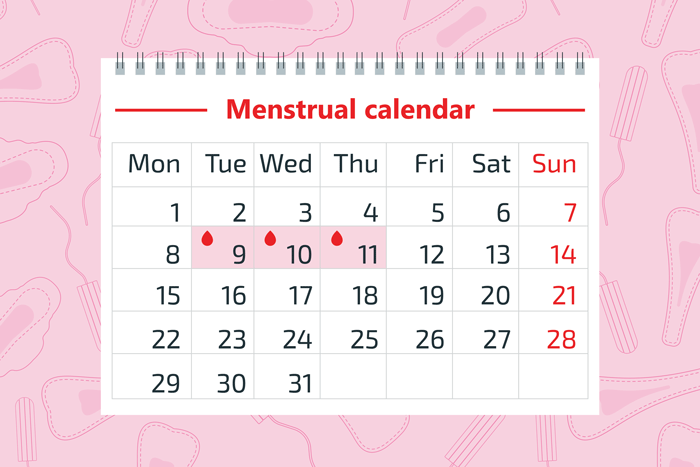
A late period can mean one of many things. For starters, if there’s a chance that you might be pregnant, you should take a pregnancy test. Otherwise, don’t fret because your period might be late due to other reasons.
Dr. Ralf Zimmermann, an OB/GYN, reproductive endocrinologist, and medical director at Neway Fertility breaks down what might be going on with your menstrual cycle below.
Weight
According to Zimmermann, weighing less than 90 percent of what’s considered healthy for your height is commonly associated with missing periods. “The cause is not completely known, but many people think it’s related to decreased body fat. With weight increase, regular cycles might return,” she says. On the flip side, a body mass index (BMI) over 30 is also linked to menstrual irregularities. “Increased fat mass is often related to abnormalities in the regulation of the hormone leptin or its receptor, which might cause menstrual cycle irregularities,” Zimmermann explains.
Disrupted sleep patterns
If you’re constantly changing time zones or working night shifts, this could explain your late period. “Flying frequently over different time zones like from the U.S. to Europe changes the circadian rhythm, which influences the secretion pattern of the hormone melatonin,” says Zimmermann. “With stopping flying frequently over different time zones, the ‘circadian clock’ is reset and periods return to [its] regular pattern.”
Birth control
Birth control thins out your uterus lining over time, so even if you skip a week each month (or take the sugar pills), there might not be enough for you to get a period. “However, your period will usually come back once you stop using contraceptives,” says Zimmerman.
Stress
Stress influences a part of your brain called the hypothalamus, which is also involved in regulating the menstrual cycle. That explains why some women miss their period after experiencing a stressful life event.
Want to track your period? Check out the best apps here.
xx, The FabFitFun Team




